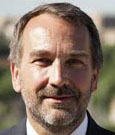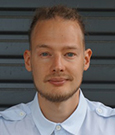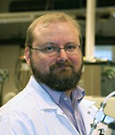
Arren Bar-Even
Max Planck Institute of Molecular Plant Physiology (MPIMP)
Germany
EMBL Conference
Successful reduction of atmospheric CO2 levels to pre-industrial levels is among the most pressing current challenges for scientific innovation. Given the scale of its impact on the global ecosystems and socio-economic implications, innovative solutions are urgently needed at the chemistry as well as biological front. The EMBL conference “Biological Solutions for the Global CO2 Challenge” will bring together scientific leaders, industrial players, as well as policy makers to discuss how synthetic biology and metabolic engineering can contribute to sustainable CO2 capture and conversion.
The conference topics will cover the entire chain of innovation, from the laboratory to the field implementation. Approaches that make optimal use of the evolutionarily optimised biological systems, like algae and plants, as well as novel synthetic biology solutions for CO2 fixation and conversion to value added chemicals will be discussed. The role of fundamental molecular biology in catalysing innovation will be one of the main focus areas for discussion.

Max Planck Institute of Molecular Plant Physiology (MPIMP)
Germany

Wageningen University & Research
The Netherlands

United Nations Framework Convention on Climate Change
Germany

Alfried Krupp Wissenschaftskolleg Greifswald
Germany

Evonik GmbH
Germany

Electrochaea
Germany

Berkeley National Laboratory and Michigan State University
USA

LanzaTech
USA

Bielefeld University
Germany

Academia Sinica
Taiwan

Uppsala University
Sweden

Goethe University
Germany

Solar Foods Oy
Finland

Max Planck Institute of Biochemistry
Germany

HeidelbergCement
Germany

Max Planck Institute for Terrestrial Microbiology
Germany

EMBL Heidelberg
Germany

EMBL Heidelberg
Germany
Date: 3 - 4 Jun 2019
Location: EMBL Heidelberg